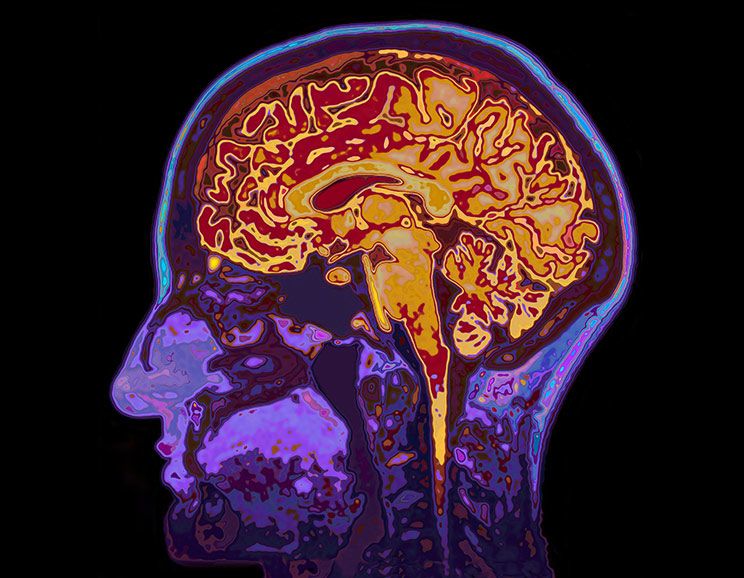Cravings, satisfaction, enjoyment, disgust. The effects of food on your brain are vast. Aging, anti-aging, weight loss, weight gain, diabetes, leptin resistance – these are only some of the effects which food has on our brain. Yes, all of these conditions have vital elements that take place in your brain – not just in your body.
Eating sugar, especially in excess, has widespread negative health effects. High blood sugar levels (caused by too much sugar in the diet) have been directly correlated with increased risk for dementia. Too much sugar also leads to insulin resistance, followed by leptin resistance – another condition that takes root in your brain. Chronically elevated leptin decreases hypothalamic leptin receptor expression and impairs leptin signaling. This means you are eating more, but your brain doesn’t think you are.
Brain Health
Conversely, there are a variety of ways that diet can protect your brain’s health. Eating nutrient dense, vegetable heavy diets are the best way. One way they work is via the Nrf2 transcription factor. Nrf2 is referred to as a master regulator of intracellular redox homeostasis. Scientific research has shown that very low carbohydrate diets may activate the Nrf2 pathway. This can occur via redox signaling. Turning on the Nrf2 pathway seems to lead to chronic cellular adaptation, induction of protective proteins, and improvement of the mitochondrial redox state.
Love turmeric recipes?
Add power-packed anti-inflammatories to every meal with these FREE turmeric recipes!
So what foods turn on the Nrf2 pathway? Dietary flavonoids – mainly vegetables and fruits – are your best bet. Nrf2 has been shown (repeatedly) to be critical for neuronal protection, through the induction of various cytoprotective genes. This is one avenue by which eating your vegetables can quite literally protect your brain and improve your mental functioning.
Brain-derived neurotrophic factor (BDNF) is another element that can be positively or negatively impacted by diet. Antidepressant treatments indeed show increases in BDNF, which means that eating foods that help raise BDNF could help alleviate some symptoms of depression – without having to take medications. In a world where the ‘answer’ is increasingly to simply take a pill, this scientific development should come as very welcome news. You may be able to control your mental health by simply changing your diet.
However, one must be careful to ascribe too much value to diet. In some cases, where mental health is inherently poor, diet can only help – not cure. That said, it is still interesting to think about all the types of possibilities, which are available to one who is suffering from poor mental health. The idea of simple dietary changes as a possible treatment option – is quite amazing to think about.
Gluten
Gluten has been an increasingly avoided element in healthful diets. While many are aware of the possible gastrointestinal issues, many are not aware of the cognitive issues that can occur when gluten is ingested. Studies have even shown changes in white matter brain tissue, in those sensitive to gluten. Since white matter is a big part of neurogenesis (growth of new brain cells) a disruption in this process would be tragic, and very bad for brain health.
Sugar
If one element has to be linked to poor brain health – more than any other – sugar is it. With no nutritional value, and only negative effects shown, sugar may be man’s greatest blunder. We now are in an obesity pandemic, and along with obesity comes metabolic syndrome – and also metabolic syndrome in the brain. Yes, you read that correctly. A poor diet leads to a deficiency of omega-3 fatty acids, which leads to dysfunctions in insulin receptor signaling and cognition. Specifically, fructose intake has been shown to be problematic in the brain, leading to more insulin resistance. Metabolic dysfunction then causes problems with synaptic plasticity. However, some of the issues of too much sugar can be improved with adequate omega-3 fatty acid intake. It is important to note though, that the key word is resolution of some issues – not all.
Metabolic syndrome in the brain results in impaired vascular reactivity, neuroinflammation, oxidative stress, and abnormal brain lipid metabolism. None of these are good. Sugar has also demonstrated increased cravings, down-regulated dopamine receptors, and many other cognitive problems. Studies have clearly indicated that sugar consumption causes cognitive dysfunction – especially when it is consumed in excess. And this is ignoring all the other vast behavioral problems associated with excess sugar consumption.
Inflammation
Many studies have shown that nutritional intervention can help to reduce inflammation and oxidative stress. When a brain ages, inflammation – as well as cellular and molecular oxidative damage – increases. This is part of why we lose our cognitive abilities. Vegetables and fruits are anti-inflammatory and contain antioxidants, helping to stop, or at least slow, this process.
We know that inflammation is bad in our bodies, but in the brain it is much worse. This is why it is essential to consume a diet rich with polyphenols, and make sure to get plenty of omega-3 fatty acids (preferably DHA). At first it was seen as somewhat improbable that diet could impact neuronal health. But then again, it once seemed improbable that we could grow new brain cells – a fact that has become indisputable over the last 20 years in the field of neurology.
More and more we are seeing studies that prove diet has a huge impact on brain health. This is especially true in cases of dementia and Alzheimer’s. Positive effects on vascular dementia have been shown with vitamin C and E, though research is ongoing. Since coconut oil has been shown to benefit those suffering from cognitive problems, it makes sense to include coconut oil in one’s diet as a preventative measure, as well.
Depression
Depression and diet has been a hotly studied topic for many years now. Consumption of omega-3 fatty acids, antioxidant rich foods, complete proteins, carbohydrates low in sugar – these all help with brain health. Now, extrapolate this out, and realize that the reverse – lots of omega-6, inflammatory foods, incomplete proteins, carbohydrates high in sugar – will likely cause depression. Now to what degree – is debatable.
Is diet only an element of depression in those who are already susceptible, or is diet causing depression in more of the population than we realize? The latter seems to be the answer, surprisingly. Since a poor diet leads to gut microbiota changes, and much of your serotonin and mental health begins in your gut – you can see the mechanism that likely causes depression. Western diets are poor in a variety of ways. Inflammatory seed oils, lack of omega-3 fatty acids, too many carbohydrates, too much fructose – the list goes on. A healthful Paleo diet is the exact opposite. Studies have shown just how bad Western foods can be – cookies being as addictive as cocaine, as one example. Since these foods are designed to addict, it comes as no surprise that poor mental health will result from their regular consumption. But to many people – sadly – this knowledge goes unlearned and unused.
Dopamine
Studies have found that diet actually alters the gene expression of dopamine. That is an incredible find, and other studies have shown that protein intake can help improve dopamine levels, as well as reducing food cravings. Poor quality fats have also been shown to reduce dopaminergic function, and this is yet one other reason why they should be avoided. The more sugar that is consumed, the more sugar is craved. And the more sugar consumed, the less pleasure you receive from it. This is the same effect that alcohol, cocaine, gambling and any other form of addiction have on your brain. And no, I am not kidding.
Conclusion
Have I made you think twice about what exactly is happening inside your brain, whenever you consume your daily meals? There is so much activity occurring at a molecular and cellular level, that there is no way to ever even comprehend all of it. But we can look to the studies, and see that there have been incredible advances since we first started studying our diet’s effects on our neuronal processes.
Consuming a healthy diet is important for so many more reasons than we can even begin to imagine. As a scientific community, we are nowhere near to understanding all of the mechanisms that are beneficial from eating healthy foods. There are, of course, some certainties. Omega-3 fatty acid supplementation (preferably DHA), complete proteins, antioxidant rich foods like blueberries, healthy fats like coconut oil and extra virgin olive oil – the list goes on.
So the next time you go to eat a simple meal, that you may have eaten fifty times prior, think – if only for a second – of all the processes and changes which are occurring in your brain. It is an amazing thing, and the choice between healthy foods and unhealthy ones, may be having much more of an impact than you realize. [author_bio name=”yes” avatar=”yes”]


 How to Make Healthy Paleo Condiments
How to Make Healthy Paleo Condiments






Show Comments